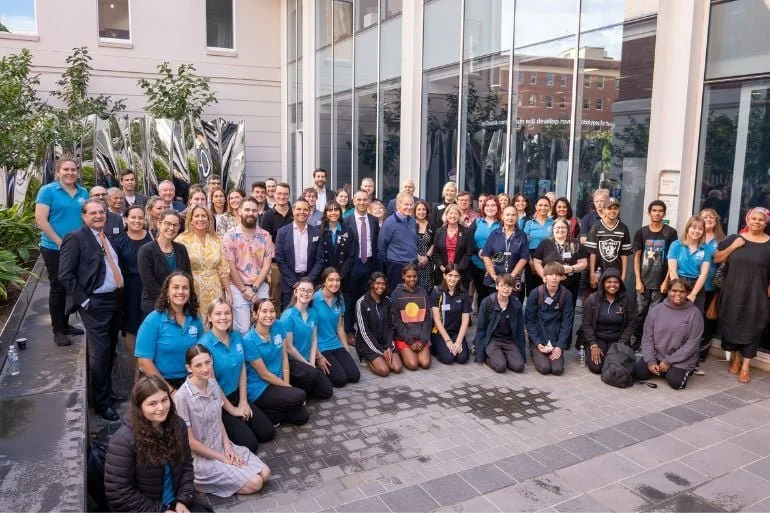Next NISA Cohort to Intern at NASA JPL
Credit: Australian Space Agency
The Monash University's National Indigenous Space Academy (NISA) has announced the selection of the second cohort of five Indigenous Australian university students who will participate in a unique 10-week internship program at NASA’s Jet Propulsion Laboratory (JPL) in California. The initiative is supported by the Australian Space Agency and CSIRO as part of a broader effort to promote diversity in the STEM workforce and provide new opportunities for First Nations students.
The five university students selected will be mentored by top-tier scientists and engineers at JPL's California facility. They will complete projects outlined by their mentors while also contributing to NASA JPL missions.
The second NISA cohort includes:
Carl Goodwin, Monash University
David Corporal, Queensland University of Technology
Jordan McGrath, Griffith University
Lucy Barr, University of Tasmania
Renee Wootten, University of Sydney
As part of their preparation for the internship, the students will participate in Monash’s ‘Space Boot Camp,’ an intensive program covering a wide range of topics related to space science such as aerodynamics, robotics, rovers, rockets, astrophysics, planetary science, engineering, computer, and earth sciences. Additionally, they will have a deep dive into NASA’s JPL past and current space exploration missions.
The Australian Space Agency has supported the initiative as a pathway for the selected students in robotics, robot perception control, path planning, and Artificial Intelligence. For instance, Carl Goodwin, who studies at Monash University, will apply his AI and machine learning knowledge for research in the space sector by analyzing spectral data captured by NASA’s Earth Surface Mineral Dust Source Investigation (EMIT) mission aboard the International Space Station.
“I am excited to be working with world-leading space scientists. Apart from that, this is also a great opportunity for me to interact and work with other like-minded Indigenous people. Our people are underrepresented in STEM, and programs like NISA are providing valuable stepping stones for First Nations students in this sector.” shares Carl.
The second NISA cohort is expected to complete projects that will strengthen their contribution to the STEM workforce and inspire other Indigenous students to follow similar pathways to reach their full potential.
The first Indigenous cohort completed their internship at NASA JPL in 2019 and 2020, with three of the four students returning to Australia to complete their STEM degrees and launch their careers.
As a priority of the Australian Government, developing a diverse STEM workforce is the key to building Australia's success in the rapidly growing space industry. Programs like NISA and other indigenous-focused STEM programs are essential to ensuring the participation of Indigenous peoples, and the wider community, in the field of space exploration.
Original article: https://www.space.gov.au/news-and-media/next-NISA-cohort-to-intern-at-NASA-JPL

